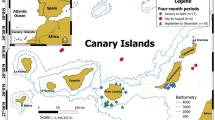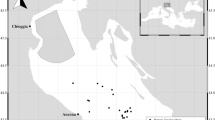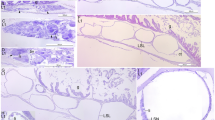Abstract
WHILE carrying out a survey of the pelagic fishes of East African waters, twenty-seven specimens (twenty-four female, three male) of the dorade or dolphin fish were caught during multiple trolling operations during September 1951–August 1952. All the dorade were taken close inshore, and from the graph it can be seen that the catches were limited to the months February–June. Although the total catch is not large, it must be remembered that the dorade is of widespread distribution in tropical seas and is nowhere abundant. In all specimens the state of maturity of the gonads was determined.
This is a preview of subscription content, access via your institution
Access options
Subscribe to this journal
Receive 51 print issues and online access
$199.00 per year
only $3.90 per issue
Buy this article
- Purchase on Springer Link
- Instant access to full article PDF
Prices may be subject to local taxes which are calculated during checkout
Similar content being viewed by others
Author information
Authors and Affiliations
Rights and permissions
About this article
Cite this article
WILLIAMS, F. Catches of Coryphæna hippurus (L.) in the Western Indian Ocean. Nature 171, 703–704 (1953). https://doi.org/10.1038/171703b0
Issue Date:
DOI: https://doi.org/10.1038/171703b0
Comments
By submitting a comment you agree to abide by our Terms and Community Guidelines. If you find something abusive or that does not comply with our terms or guidelines please flag it as inappropriate.



